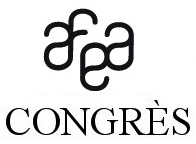Public Health Service in South Africa remains a major challenge for the post-apartheid state. Fifteen years after the demise of apartheid, the majority of South Africans do not have access to reliable Health services. The complexities of the post-apartheid state, the massive cost of health services delivery and the heritage of unequal services within the public health sector have all contributed to pushing questions of infertility off the public health agenda. However, issues of infertility do concern many ordinary South Africans.
Medically assisted procreation has become a private affair : It is available at private health care institutions in South Africa to those who can afford such treatment. As such it forms part of a lucrative international market of private health service delivery. Fertility clinics in Pretoria/Gauteng listed on various websites like www.fertiliocare.co.za or www.cryobank.co.za or www.getpregnanat.co.za seem to share medical fertility specialists. The fertility products listed on their website are very similar to each other and the clientele they draw are individuals who can afford to pay for their treatment. These clinics also combine tourism opportunities with health care. The people they target are wealthy and can be both South Africans and foreigners from Africa and beyond.
A major challenge in doing ethnography of medically assisted procreation in Pretoria is gaining access. Fertility medical specialists are rather reluctant to allow an anthropological gaze in their clinics. They are well acquainted with research procedures and use them as barriers to the anthropologists. In this instance, the anthropologists have to find alternate ways of doing fieldwork and collecting data on Medically Assisted Procreation. This paper will contextualize these dynamics within the framework of relations of power: How to negotiate the fieldwork and data collection when the dominant position is held by the interviewee.

 PDF version
PDF version
